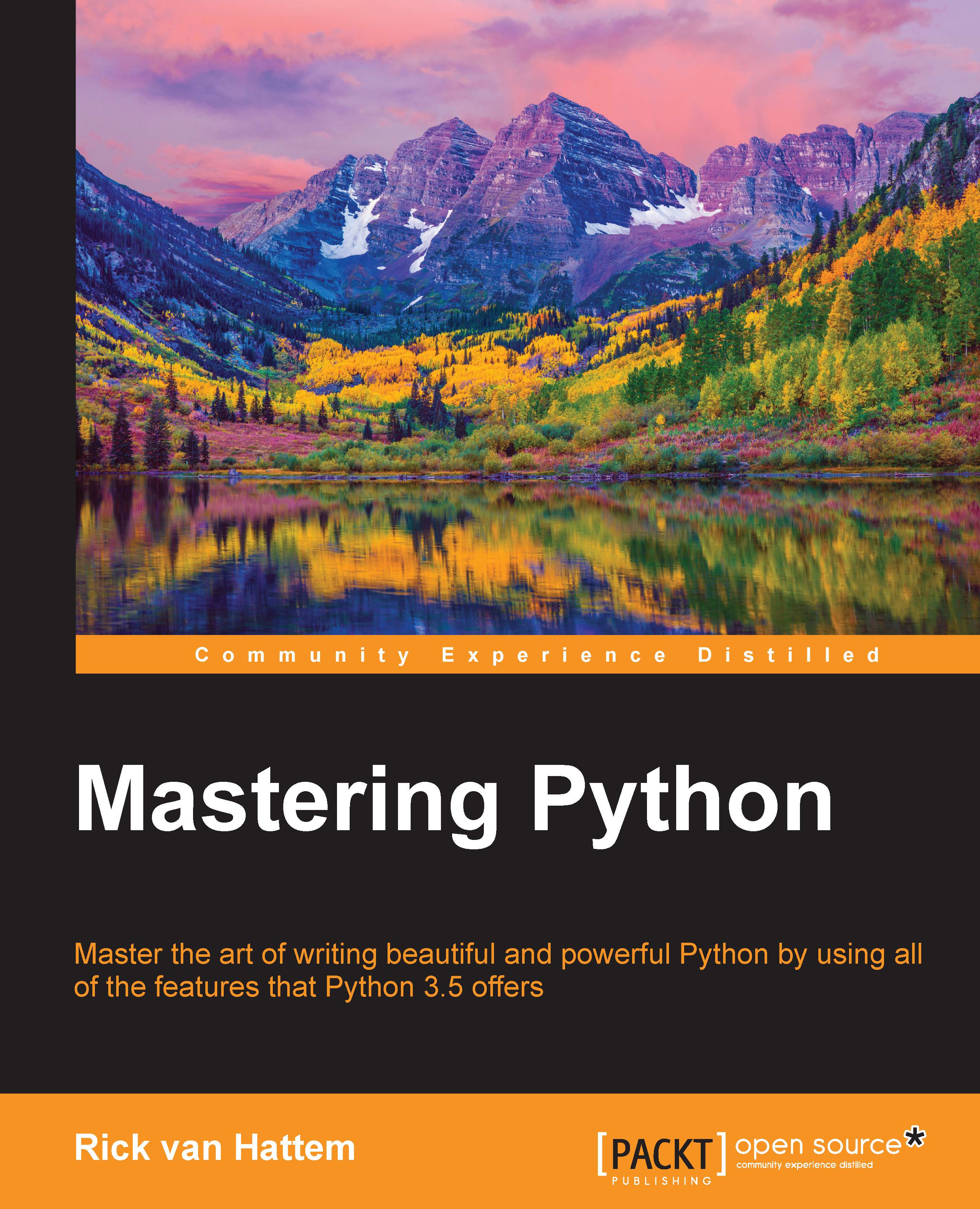-
Book Overview & Buying

-
Table Of Contents

Mastering Python
By :

Mastering Python
By:
Overview of this book
 Free Chapter
Free Chapter
 Sign In
Start Free Trial
Sign In
Start Free Trial

 Free Chapter
Free Chapter
Now that we know a bit more about performance and multiprocessing, we will explain another subject that is at least somewhat performance-related—the usage of C and/or C++ extensions.
There are multiple reasons to consider C/C++ extensions. Having existing libraries available is an important one, but truthfully, the most important reason is performance. In Chapter 12, Performance – Tracking and Reducing Your Memory and CPU Usage, we saw that the cProfile module is about 10 times faster than the profile module, which indicates that at least some C extensions are faster than their pure Python equivalents. This chapter will not focus on performance that much, however. The goal here is interaction with non-Python libraries. Any performance improvement will just be a completely unintentional side effect.
We will discuss the following options in this chapter:
